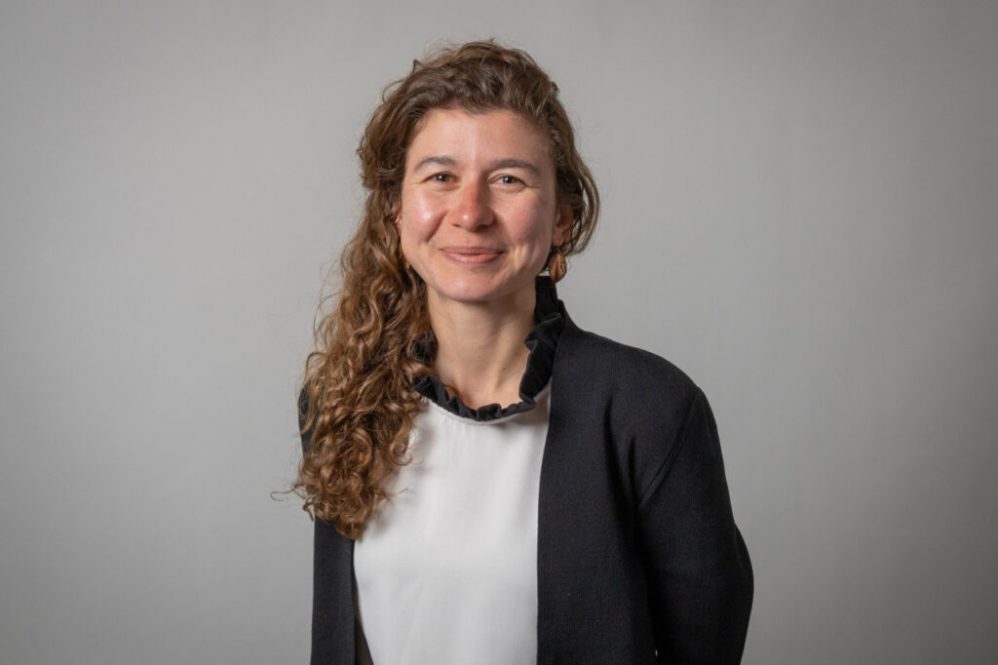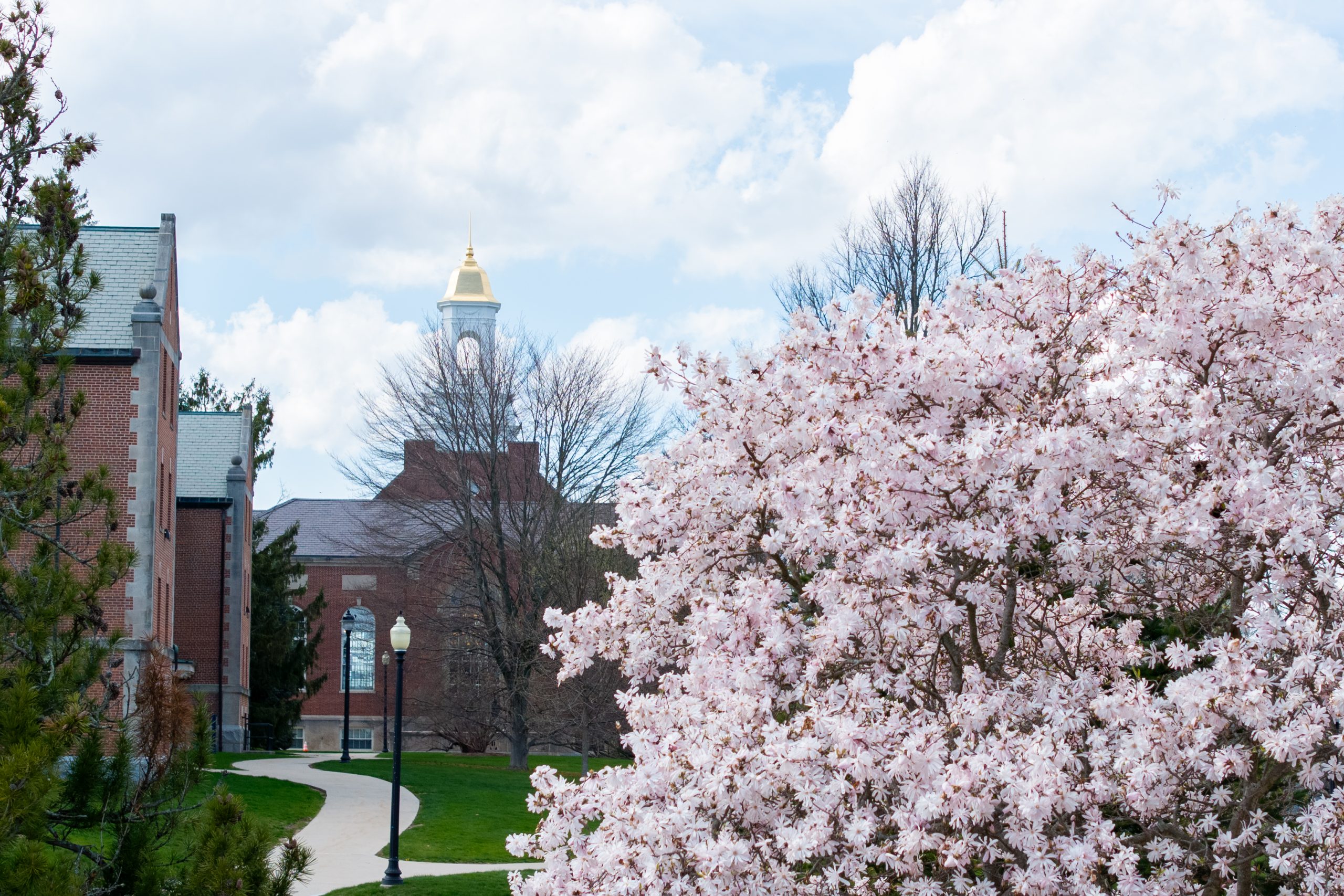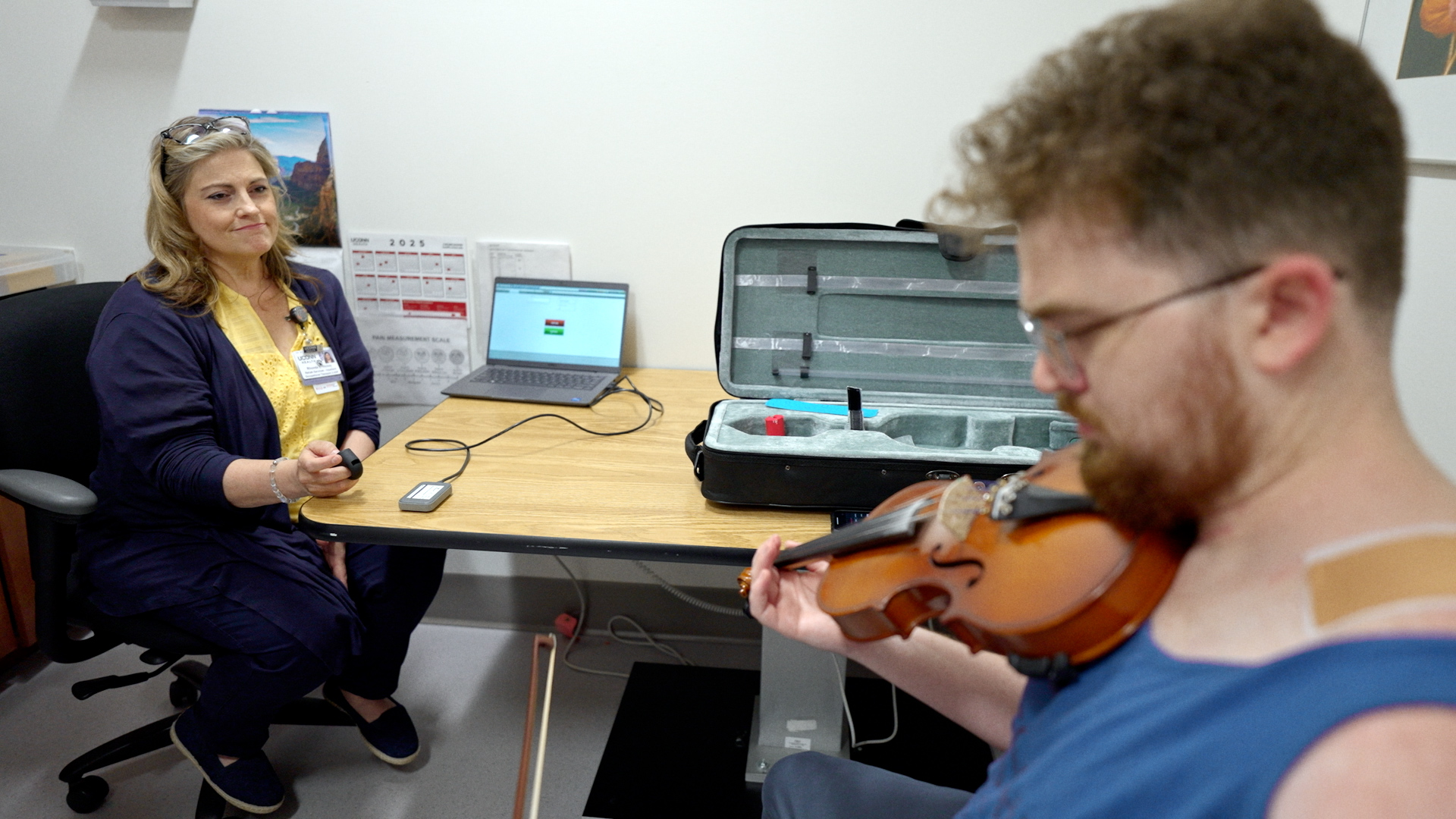By Olivia Drake, Written Communications Specialist
Desen Ozkan recognizes that engineering is traditionally thought of as using math and science to solve problems in the world.
But what is missing from this definition—and the engineering curriculum—she says, are the contexts in which engineers interact in a world of political, social, and economic consequences.
“When engineering is portrayed as a field that encompasses various contexts and is influenced by social and technological factors, it can have a positive impact on the individuals who choose to pursue a career in engineering,” she said. “If engineers fail to consider the social and political aspects surrounding their work, they may unintentionally contribute to existing problems and inequalities.”
Ozkan, a new tenure-track assistant professor of chemical and biomolecular engineering (CBE), will join the University of Connecticut’s School of Engineering this fall. In addition to her own CBE scholarship and instruction, in the future, Ozkan will develop a preliminary curriculum for new initiatives in engineering education and experiential learning.
This graduate-level program will offer students a solid understanding of engineering education theory, cultures, and research methodologies. Students will learn about evidence-driven ways to engage students in engineering concepts while conducting empirical research and analysis to uncover patterns, trends, and effective approaches in engineering education.
“By incorporating theoretical foundations and practical applications, the potential program equips graduates with the skills and knowledge necessary for a diverse range of careers,” explained Daniel Burkey, associate dean of undergraduate education and diversity, Castleman Term Professor in Engineering Innovation, and associate professor of chemical and biomolecular engineering. “Professor Ozkan will help the School of Engineering with designing a curriculum framework that promotes deeper learning, integrates interdisciplinary approaches, and reflects current industry needs while generating new knowledge to advance the understanding of how engineering education can be improved.”
In addition, Burkey said experiential learning is a valued tenet of the university and offers students a hands-on practicum to better serve their industry and our society.
Ozkan comes to UConn from Tufts University where she’s a postdoctoral researcher at the Center for Engineering Education and Outreach (CEEO) and the Institute for Research on Learning and Education (IRLI). She also created and taught the courses “Deconstructing Engineering Design, Data and Power in Surveillance,” and “Power and Politics of STEM Education” for students of all majors.
At UConn, Ozkan hopes to teach a course for engineering and liberal arts undergraduates alike. Students would engage with a topic, for example, renewable energy, and spend the semester exploring the theme through cross-disciplinary and historical perspectives. Ozkan would assign readings from The Birth of Energy by Cara Daggett or Carbon Democracy by Timothy Mitchell along with National Renewable Energy Lab (NREL) reports on the energy transition.
“From there, students would engage in different practices that come into play in an energy transition—topics could range from energy storage, grid infrastructure, union and non-union labor, etc.,” she said. “Lastly, students would work to define a problem they want to address through a project.”
Ozkan hopes to partner with faculty in other schools and colleges when building on experimental learning and engineering education initiatives. UConn’s Neag School of Education will be among her go-tos for faculty collaborations.
“I’ve already had the pleasure of meeting many folks from across the School of Engineering who have been doing critical work on ethics and engineering, engineering and human rights, and renewable energies,” she said. “This political and societally relevant content will be critical to integrate into the engineering curriculum.”
In her own work, Ozkan wants to emphasize the importance of teaching engineering courses through a “context-rich” and “sociotechnical” lens. “Context-rich” acknowledges that engineering projects and solutions are developed within specific environments—such as cultural, economic, and environmental contexts. And when engineering is seen as “sociotechnical,” it emphasizes the interplay between social and technical elements and encourages engineers to consider the societal, ethical, and human aspects of their work.
While Ozkan’s primary focus this fall will be developing a curriculum for the new initative, she’ll also continue her efforts investigating the topic of offshore wind engineering and education.
In May 2022, three Connecticut state legislators invited a research team from Tufts, led by Professor Eric Hines, to conduct a scholarly study on equity in offshore wind industry job development. Ozkan was a key contributor to the project after working on a similar report for Maine in 2021. The team’s research, titled “Developing a Diverse, Equitable, and Just Offshore Wind Workforce in Connecticut” is supported by a 2022 Tufts CREATE (Climate, Renewable Energy, Agriculture, Technology and Ecology) Solutions grant.
“At UConn, I intend to explore this through a transdisciplinary approach,” she said.
Ozkan earned a Bachelor of Science in chemical and biological engineering at Tufts in 2013 and a doctorate in engineering education from Virginia Tech in 2020. Before venturing into the field of engineering education, Ozkan served as a graduate research assistant for the Electrical and Computer Engineering Department at Virginia Tech, and as a wastewater reclamation research assistant at the University of Tennessee-Knoxville.
She’s already the co-author of eight refereed journal articles on engineering education, transdisciplinary collaborations, and study abroad leadership teams. Her work has been published in Studies in Engineering Education, the Journal of International Engineering Education, the Journal of Advanced Academics, among others.
In addition to teaching and research, Ozkan is an active member of the American Society for Engineering Education (ASEE), Institute of Electrical and Electronics Engineers (IEEE), and the Society for Social Studies of Science (4S). During the 2022 ASEE Conference & Exposition, her paper, titled “Perspectives of Seven Minoritized Students in a First-Year Course Redesign toward Sociotechnical Engineering Education,” won the “Best Diversity Paper Award” for the Liberal Education/Engineering & Society division.
For these reasons, and others, Burkey feels confident that Ozkan will fill a much-needed niche in the School of Engineering.
“We’re elated that Professor Ozkan has accepted our invitation to join us here in the SoE,” Burkey said. “Her expertise in engineering education, research contributions, interdisciplinary background, and teaching and grant-writing experience will be valued immensely by our faculty and contribute to our mission of providing the highest-quality engineering education possible to our students.”
A new focus on engineering education and experimental learning may serve as a campus-wide collaboration hub for catalyzing new work. Burkey envisions interdisciplinary projects developing between the Neag School of Education, the Human Rights Institute, and the Vergnano Institute of Inclusion, specifically benefiting engineering education research; first-year engineering education; graduate education; continuing and professional education; justice, equity, diversity, and inclusivity research; K-12 STEM education; faculty pedagogy; and more.
“The idea of ‘engineering education’ is inherently multi- and cross-disciplinary, and it aligns with many key University strategic areas, including strengthening undergraduate and graduate education, research in justice, equity, diversity, and inclusivity topics, and sustainability education,” Burkey said. “We’ve seen similar initiatives launched at other public, R1 engineering programs including Purdue, Michigan, Florida, Ohio State and Virginia Tech. So by implementing a similar enterprise, we’ll bring the School of Engineering’s offerings to the forefront of the field.”
And while Burkey values the skills Ozkan will bring to the School of Engineering, Ozkan is eager to develop relationships with her new colleagues.
“In the first few years of my time at UConn, I’m excited to learn from the broad expertise of faculty, staff, and students, so I can continue building on the strong interconnectedness of the community,” she said.



